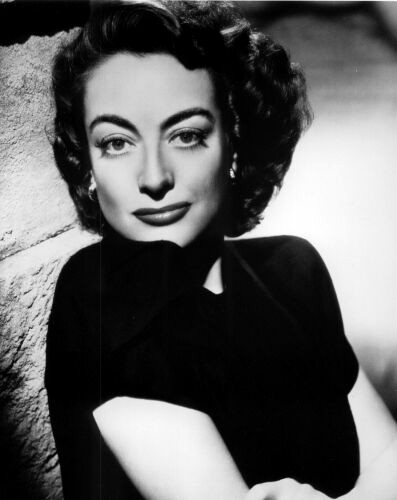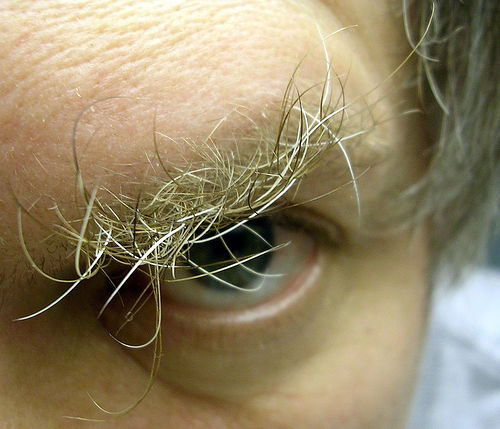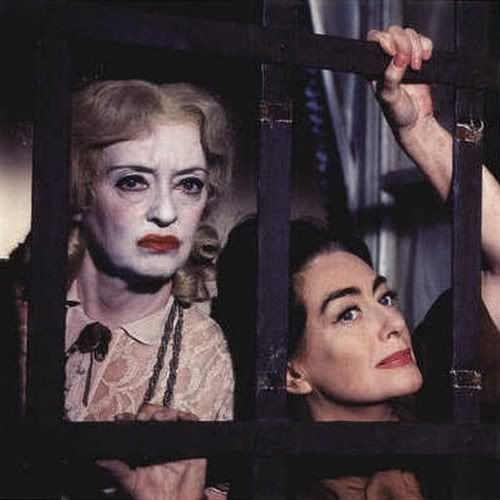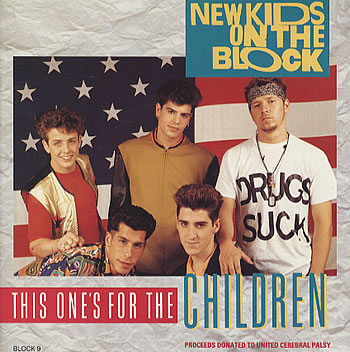Let us count the ways.
1. You forever eliminated our desire to procreate.
2. You made us think treasure was buried somewhere in our town.
3. You always uncovered the dark truth of just what Willis was talkin’ bout.
4. You reminded us of the value of cheese, and the best way cover unsavory actions.
We don’t know where these little rays of sunshine come from that so light up our dark, desolate lives. But we here at the RDHP know one thing:
Like a fine Napa Valley wine, child actors just get more fruity with age.
Such is the case with former child star Baby Jane Hudson, the insane namesake of this week’s 1960s thriller, “What Ever Happened to Baby Jane.”
Back in the days of vaudeville, olde Baby Jane was a singing, dancing, bitch-filled superstar of the stage. Children adored her, and rushed out of performances to buy lifelike dolls of the cutie-pie. Pushed by her stage-dad to bring home the bacon, the little brat had her entire family wrapped around her finger. The pre-Madonna’s demands of after-show ice cream and unlimited attention never stopped.
Drowning in Jane’s shadow was her sister Blanche, a quiet girl who was routinely tortured by Jane’s behavior. Someday, Blanche thought, she would be the star, and get revenge on Jane. Fast-forward several years, and the sister’s roles have reversed. Pushed by a childhood of living in Jane’s shadow, Blanche had become a major movie star. Jane, whose talents had waned over the years, now had to rely on Blanche to procure her crappy parts in B-grade movies.
Jealously both past and present abounded between the sisters. Then one night after coming back from a drunken Hollywood party, Jane’s contempt for her now-famous sister got the best of her. With the shift of a gear, Jane mowed down Blanche with a car, paralyzing her from the waist down.
Their careers shrouded in scandal, Jane is forced to care for invalid Blanche, the two holed up in their Hollywood mansion for decades.
Isolated and long forgotten by fickle Tinsletown, Jane slowly starts to unravel. She needs the attention of fame, and each day in obscurity sends her deeper into madness.
The film catches up with the sisters in their twilight years. When a TV station begins running a series of Blanche’s old movies, it reignites her fame much to the horror of Jane. Blanche is once again famous, and not me! It is the Botox that breaks the models face, as Jane finally snaps and begins to slowly plot the demise of her crippled, dependant sister.
Ugly old actresses abound in the 1962 film “What Ever Happened to Baby Jane?”
RDHP Ratings and Reviews:
C-Rating: 3.9
Chris Dimick signs, acts, dances:
“Glory days. They’ll pass you by, glory days. Bruce was so right. The central theme of What Ever Happened to Baby Jane – trying to reclaim better times gone by – is a heartbreaking one. Past accomplishments are so reassuring. All the stress and pain is gone, and one can look back at a momentous occasion and just revel in its warm hug. It doesn’t help that past memories have been mentally retouched, wiped clean of imperfections, insecurities, and other traumas present at the time.
This isn’t all bad: remembering what you achieved yesterday can give you courage to achieve something tomorrow. But usually people use these glory days as a crutch, an unproductive mental escape from present life. An excuse to loath the present as a depressing waste of time incomparable to elusive “better days.”
Everyone longs to return to parts of their past at times. But it is when people try to live in the past that serious social complications can occur. This point is played out in a gripping, tense and at times hilarious way in WEHTBJ.
Melodramatic is too subtle a word to describe the plot of this movie. But in a way it works with the subject matter. Most impressive is the performances by the lead actors. The entire movie is a showpiece for leading ladies Bette Davis (Jane) and Joan Crawford (Blanche). They were perfectly cast – in a way playing a distorted, demented, but true version of themselves.
Both were once beautiful, toast-of-the-town actresses in the 1930s who by 1962 had seen their beauty and fame wane. You could see the personal connection Davis and Crawford brought to their characters. Enchanting is the only way to describe Crawford as the humbled Blanche. Horrifying the best word for Davis’s manic Baby Jane.
The film is very over-the-top, and does contain some classic shout at the screen moments (Don’t go into that room! Don’t put down a hammer near a clearly insane woman and then turn your back on her! Ahhhhhhhhhhhhhhh! was shouted by both Nick and I at one point.)
But it is the performances of Davis and Crawford that excuse these faux pas. The story is cheesy, but in a fun I-can’t-stop watching-even-though-I-know-this-is-bad-for-me Jerry Springer type way. It is so entertaining you can let the little things slide.
We don’t give away endings at the RDHP, but I have to say that this films ending left me with actual chills. It was brilliant, perfect, and truly hit the spot with its twisty, demented conclusion.
Watching this movie I kept thinking about Corey Haim, Andrew Koenig, and the other former child actors who have recently died due to drugs or suicide. Koenig played “Richard 'Boner' Stabone” on the 1980s TV classic Growing Pains, one of my favorite shows back in those glory days of youth.
The Today Show interviewed Koenig’s Growing Pains co-star Kirk Cameron the day after he was found hanging from a tree in a Vancouver Park, and the conversation steered to why all these child actors have recently ended up crazy, drug-fueled, or dead.
Cameron said that basically it is because child stars achieve too much success too early in life. A child star, while still in their formative years, is showered with praise, attention, and everything they desire while at the height of their career. But like most actors, their time in the spotlight is fleeting, and they go from being the center of attention, getting anything they want, to being suddenly ignored and forgotten.
Child stars get used to this special treatment, and it gets ingrained in them that life will be like that, at the pinnacle of their fame, for the rest of their life. When that doesn’t pan out, and their careers eventually go south, Cameron said people become obsessed with getting back to the top. Their perspective had been shifted to a no longer obtainable standard of happy. They equate their loss of fame with their loss of identity. And when they can’t get back to where they were, in the glory days, they see their current – by most people’s perceptions, normal – state in life as a failure. Then comes the insanity, the drugs or the suicide.
A child star’s rollercoaster life might be hard for the average person to relate to… but the message is still translatable. This movie shouts the point.
Remember the glory days, but don’t try to live in them.”
N-Rating: 3.1
Nick Rich sings, acts, dances:
"I suppose I don't think about exactly why horror movies are scary that often; I just enjoy them. Well true believers, this flick made me really think about what true horror looks like and let me tell you... it's ugly. I was of two minds on this film and as such, I will explain them both for you before laying down The Skinny.
Mind One:
This mind was wrapped up in the fact that Baby Jane eerily reminded me of my grandmother, Dorthy Lamour (no my grandmother was not the Dorthy Lamour, but that was her maiden name and it certainly helped pack in crowds of G.I.'s when she was a USO singer back in WWII). Now, my grandmother is by no means this level of crazy, but she certainly has her own sense of flare and strong opinions... all of which left a strong impression on my childhood development. Dorthy was one of those grandparents that didn't treat you like a child, but as an adult (needless to say we had many a heated debate).
With this history kicking around my subconscious, I found myself increasingly distraught and disturbed by the descent Baby Jane makes in this film. As I watched Baby Jane's behavior, I recalled strange moments with Dorthy, which made Baby Jane's actions in this film all the more palpable (and horrifying) to me. I could feel her insanity breathing down my neck, feel the terrifying helplessness of not knowing what will come next, feel the dread as I saw the perceived truth behind her crazed eyes. Basically what I'm trying to say is this is a family film.
Mind Two:
Moving on from the Freudian, Mind Two (unlike Chris) could not get over the implausibility of the behavior of the characters in this film! The sharp witted housekeeper who so insistently pushed to have Baby Jane committed, days later accepts Baby Jane's sickly-sweet lies and trusts her mental stability! The tubby man-giant who can't dispatch an aged woman with the mind of a child! The trapped sister who simply won't shout out the window for aid! All of this was enough to make me as crazy as Baby Jane (which may have been the point)!
I've said it before, but when a film shows characters acting unrealistically I'm totally taken out of the moment. It's not about the plausibility of the story or setting for me, but how the characters react in said situations that really makes or breaks a flick for me, and in the case of WEHTBJ I just couldn't get over the pervasive stupidity of the characters. Granted, the performances of the two leading ladies were amazingly captivating (especially Bette Davis), but in spite of that I found myself fuming on and on about the foolish actions of characters until I was distracted by even more examples of idiocy. Don't let the black and white fool you - this film took place in the 60's, where I'd hope that people would be a bit more cautious than those in years past (commies lurking everywhere and all for the better part of 15 years), but nooooo!
The Skinny: check this flick out if you're in the mood for a) some quality screen shouting, b) want to reassure yourself you made the right choice to not pursue a career in child acting (phew! I dodged a bullet with that one!), or c) miss your Grams."
Quote of the Viewing:
[Scene: Baby Jane must fix all of crippled sister Blanche’s meals. Slowly descending into madness, Jane brings Blanche her dinner only for Blanche to uncover the serving platter lid and find her dead pet bird on a bed of lettuce]
Nick: “Talk about a fowl meal.”
Chris: “Booooooo. Boooooooooooooo. Boo!”
[Scene: Jane brings Blanche another meal enhanced with a touch of crazy. This time the main course under the serving platter lid is a festering rat]
Chris: “Mmmm, ratatouille tonight!”
Nick: “Now who gets a ‘Boo?’ It’s you.”
RDHP Salutes Eyebrows:
Stop and think about it for a minute… eyebrows are just plain weird, aren’t they! Why is most of our face free from hair, but then two big face-rugs sit atop our eyes? Anyone? And don’t give me that business about eyebrows keeping sweat out of our eyes. We all know that is what sweat bands are for.
In honor of WEHTBJ lead actress Joan Crawford's amazingly horrifying face ornaments, we present a salute to eyebrows!
In honor of WEHTBJ lead actress Joan Crawford's amazingly horrifying face ornaments, we present a salute to eyebrows!
Joan Crawford
Frida Kahlo
Anyone who can make Selma Hayek ugly has some serious eye-drape problems.
Spock
So pointy!
Nothing says “I’m gonna cut you, bitch” like these bad-boys.
No Eyebrows People
Oh, wow, you are just so trendy with this look. Actually, you look about four seconds from death.
Gene Shallot
This guys just has too much hair going on everywhere.
RuPaul
"What Ever Happened to Baby Jane" Fun Facts:
-As on the screen, Joan Crawford and Bette Davis despised each other in real life. The hatred spawned from the fact that the two actresses were always competing for the same roles throughout their careers.
- The actor who played the dumpy British accompanist Edwin Flagg actually gained 124 pounds just for the role, mainly through a diet of pork fat blended with hostess ringdings.
- During production, Bette Davis had a Coca-Cola machine installed on the set to anger Joan Crawford, whose late husband had been CEO of rival Pepsi-Cola and who herself was on the board of directors of that company.
- While touring the talk show circuit to promote the movie, Bette Davis told one interviewer that when she and Joan Crawford were first suggested for the leads in this film, Warner Bros. studio head Jack L. Warner replied: "I wouldn't give a plugged nickel for either one of those two old broads." Recalling the story, Davis laughed at her own expense. The following day, she reportedly received a telegram from Crawford: "In future, please do not refer to me as an old broad, or I will cut your tongue out with a chopstick!"
- In addition to her trademark number "I've Written a Letter to Daddy", the young Baby Jane apparently had other hit songs in her act. When Edwin prepares to play the piano for their rehearsal, we see Jane's picture featured on old sheet music for songs entitled "What-What in the Butt", "I’ll Curb-Stomp the Kaiser” and "The Darker the Berry, The Sweeter the Juice"
- The movies director Robert Aldrich conducted every scene of the film in full drag. It was a bold move for 1962, but earned Davis and Crawford’s respect since he could always be called the ugliest woman in the room.
-While a clean cut figure in the 1930s and 40s, by 1962 Bette Davis had become a full-blown heroin addict. Only slight touch-ups of makeup were applied to the actress's face to achieve the Baby Jane look.
Things We Learned From WEHTBJ:
-Don’t tell your mom she created you by humping a stranger. It makes her mad.
-(Said in a Jeff Foxworthy voice) If you do a singing monologue in front of the mirror, you might be a crazy.
-Nobody puts Baby (Jane doll) in a corner!
-Reading aloud what you are writing helps get the words on the page.
-If a child writes a letter to their dead father, the post office accepts a kiss in place of a stamp.
-When people in wheelchairs get freaked out, they spin around in circles.
-Natural hair on a life size children’s doll is a great selling point.
-You don’t have to tie your tie if you just use a tie clip.
-Bette Davis did not age well.
-Drinking doesn’t do any real harm to insane people.
-Child actors have always been a few bricks short.
Things That Make the RDHP Revert to a Child-like State:
Baby Jane eventually reverted back to her hey-day as a child star. No matter how old the RDHP may get, there are just some things that will always make us feel like a kid again too.
New Kids On The Block
Shopping (when it’s not for us)
Want to see a grown man throw a hissy-fit, drag his crying ass into Sephora for more than 20 minutes.
Big League Chew
Disapproving Stare from the Wife
Sparklers
Halloween time
Homemade Back to the Future Cars
Seven to Ten Whiskey and Waters
Alcohol gives a man limited brain capacity, slow motor skills, and eventually a wet bed… just like a 2-year-old.
Kool-Aid
Child Star Mug Shot Jamboree:
Yep, child stars are loose in the head. Think about the fate of these a-holes before you strap a bra and high heels on your five year old ala the horror-people of Toddlers and Tiaras.
Macaulay Culkin
































Eyebrow photo by Patrick T. Power
ReplyDelete